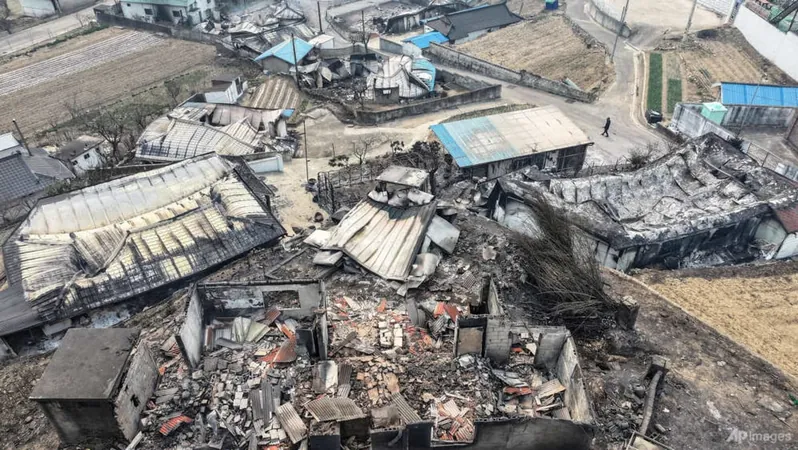
CDC Issues Urgent Dengue Virus Alert: 7 Essential Facts You Need to Know!
2025-03-18
Author: Daniel
In a crucial health advisory released on March 18, the Centers for Disease Control and Prevention (CDC) is sounding the alarm about the rising cases of dengue fever across the Caribbean and the Americas. With travel season approaching, health officials warn that the risk of both travel-associated and locally acquired dengue cases is escalating significantly.
Dengue fever, transmitted by mosquitoes, has been particularly prevalent in Puerto Rico and the U.S. Virgin Islands. Alarmingly, cases of locally acquired dengue were identified in several states, including Arizona, California, Florida, Hawaii, and Texas in 2024. Last year, the U.S. experienced an unprecedented spike in dengue, reporting 3,483 travel-associated cases—an astonishing 84% increase from 2023. The CDC predicts that this upward trend will persist, especially with heightened dengue activity likely in endemic regions throughout 2025.
To help healthcare providers navigate the rising threat, here are seven critical points to keep in mind:
1. High Suspicion in Feverish Patients
If patients have a fever and have traveled to areas where dengue transmission is common within the last two weeks, dengue should be considered as a potential diagnosis.
2. Thorough Travel History
It's essential to take an in-depth travel history from patients presenting with acute febrile illnesses to better assess their risk for dengue.
3. Preventive Measures
Advise all patients planning to travel to endemic areas on effective strategies to prevent mosquito bites, including using repellents, wearing long sleeves, and staying in places with air conditioning or screens.
4. Testing Protocols
Regardless of when symptoms began, patients suspected of having dengue should be tested using RT-PCR, NS1 antigen tests, and IgM ELISA antibody tests to confirm the diagnosis.
5. Recognizing Severe Symptoms
Be vigilant for signs of severe dengue, such as intense abdominal pain, persistent vomiting, fluid accumulation, mucosal bleeding, liver enlargement, and changes in mental state. The critical phase occurs when fever starts to subside—without proper management, patients may deteriorate rapidly.
6. Outpatient vs. Hospital Management
For patients suspected of having dengue who do not exhibit warning signs, outpatient management may be appropriate. However, those with severe dengue or warning signs must be hospitalized for proper care.
7. Mandatory Reporting
All dengue infections must be reported to health departments to help manage and monitor outbreaks effectively.
As dengue outbreaks surge, awareness and proactive measures are vital. Stay informed, and safeguard yourself and your community against this potentially serious mosquito-borne disease!




 Brasil (PT)
Brasil (PT)
 Canada (EN)
Canada (EN)
 Chile (ES)
Chile (ES)
 Česko (CS)
Česko (CS)
 대한민국 (KO)
대한민국 (KO)
 España (ES)
España (ES)
 France (FR)
France (FR)
 Hong Kong (EN)
Hong Kong (EN)
 Italia (IT)
Italia (IT)
 日本 (JA)
日本 (JA)
 Magyarország (HU)
Magyarország (HU)
 Norge (NO)
Norge (NO)
 Polska (PL)
Polska (PL)
 Schweiz (DE)
Schweiz (DE)
 Singapore (EN)
Singapore (EN)
 Sverige (SV)
Sverige (SV)
 Suomi (FI)
Suomi (FI)
 Türkiye (TR)
Türkiye (TR)
 الإمارات العربية المتحدة (AR)
الإمارات العربية المتحدة (AR)